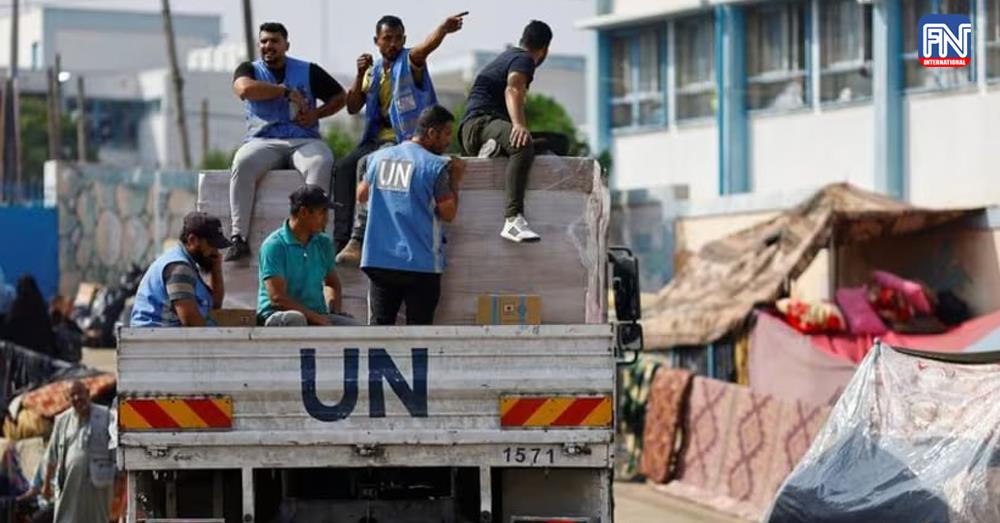GAZA, Oct 30 (Reuters) - More than one border crossing was needed to deliver aid to the besieged Gaza Strip and Kerem Shalom controlled by Israel is the only one equipped to take enough trucks, the United Nations said on Monday (Oct 30).
Aid trucks have been trickling into Gaza from Egypt over the past week via Rafah, the main crossing that does not border Israel. It has become the main point of aid delivery since Israel imposed a "total siege" of the enclave in retaliation for an attack by Palestinian Hamas militants from Gaza on Oct 7.
UN officials have repeatedly said this was insufficient for the scale of needs of Gaza's civilian population of about 2.3 million, more than one million of whom have been made homeless by Israel's bombardment.
"More than one entry point into Gaza is indispensable if we are to make a difference - Kerem Shalom, between Israel and Gaza, is the only crossing equipped to rapidly process a sufficiently large number of trucks," senior UN aid official Lisa Doughten told the UN Security Council.
Doughten was speaking on behalf of UN aid chief Martin Griffiths, who is in Israel working to increase deliveries.
The United States is leading negotiations with Israel, Egypt and the UN to try and create a sustained delivery mechanism for aid to Gaza. They are wrangling over procedures for inspecting aid and bombardments on the Gaza side of the border.
Each truck has to offload its cargo at a checkpoint for inspection for possible arms and ammunition, then they are reloaded when the check is complete, UN World Food Programme Executive Director Cindy McCain said last week.
US Ambassador to the United Nations, Linda Thomas-Greenfield, said the number of trucks entering Gaza "must be scaled up urgently". The United States has been trying to balance staunch support for its ally Israel with growing global concern about the humanitarian crisis.
Doughten said it was particularly urgent to replenish fuel supplies, which power essential services such as hospitals and water desalination plants, and needed for the vehicles carrying the aid.
The UN Children's Agency (UNICEF) Executive Director, Catherine Russell, told the council that an estimated 55 per cent of Gaza's water supply infrastructure needs repair or rehabilitation. She said only one desalination plant is operating at 5 per cent capacity and all six of Gaza's water-waste treatment plants had shut down.
"The lack of clean water and safe sanitation is on the verge of becoming a catastrophe," Russell said.
The head of UNRWA, the United Nations Palestinian Refugee Agency, Philippe Lazzarini, warned that Palestinians in Gaza were being subjected to forced displacement and collective punishment.
Israel has renewed warnings for civilians to move from the north of Gaza to the south as it began an advance late on Friday to pursue Hamas militants it says are hiding in a labyrinth of tunnels under Gaza City.
Lazzarini also said a communication blackout over the weekend had accelerated the breaking down of civil order and if that breakdown worsened it "will make it extremely difficult, if not impossible" for the UN to continue operating in Gaza.
Thomas-Greenfield said the United States told Israeli leaders of its concern about the blackout "and we understand communication networks have started to be restored".
